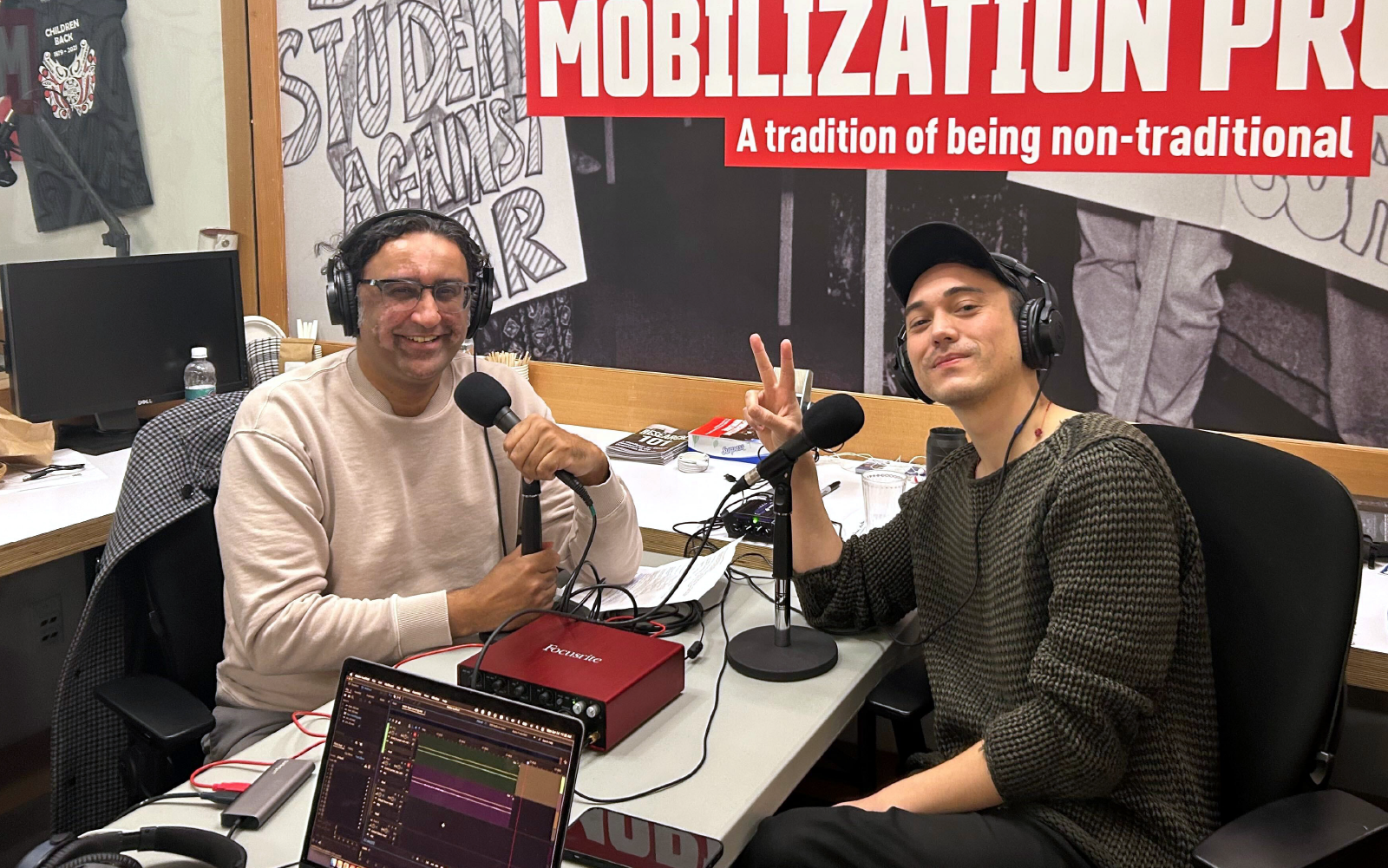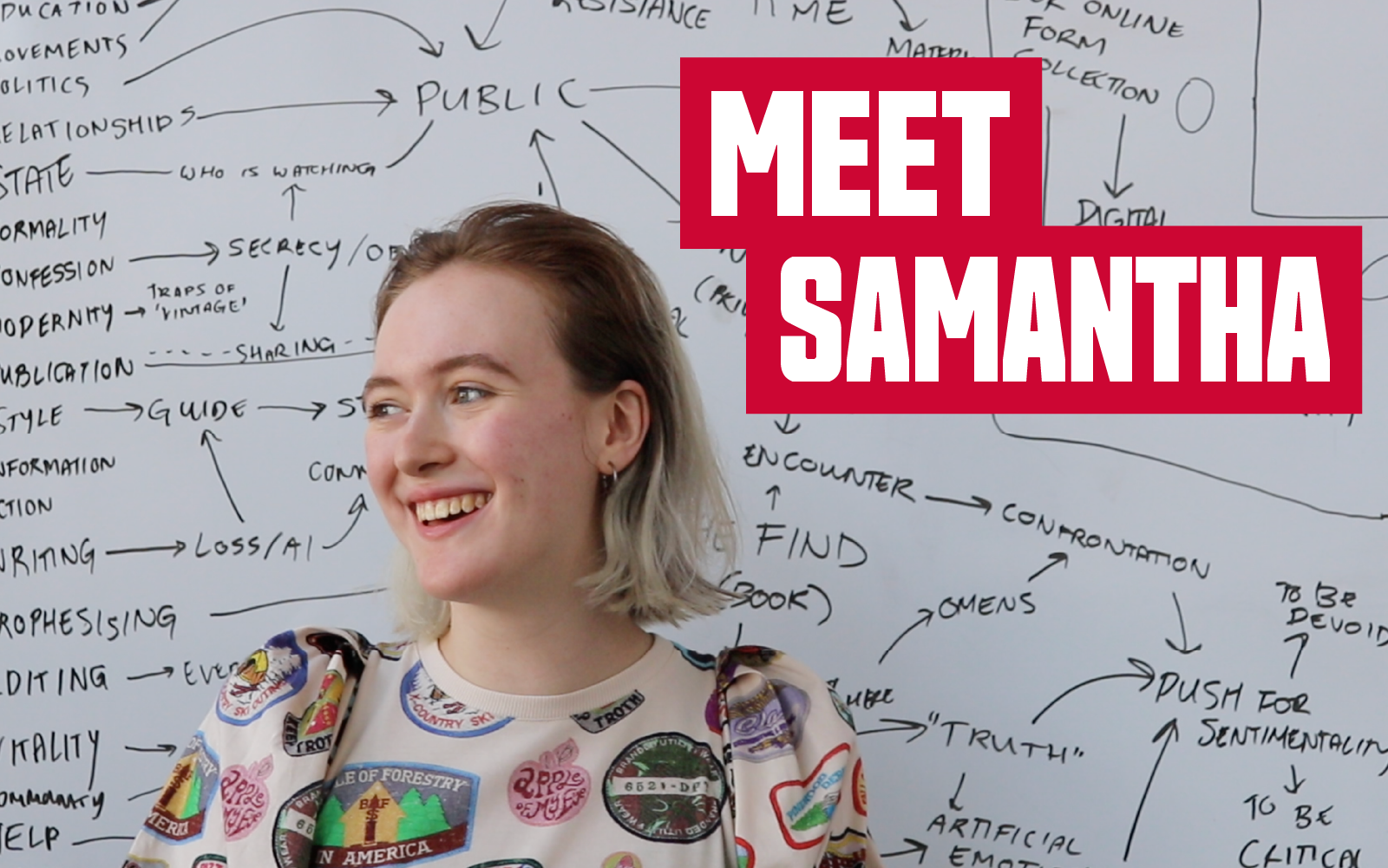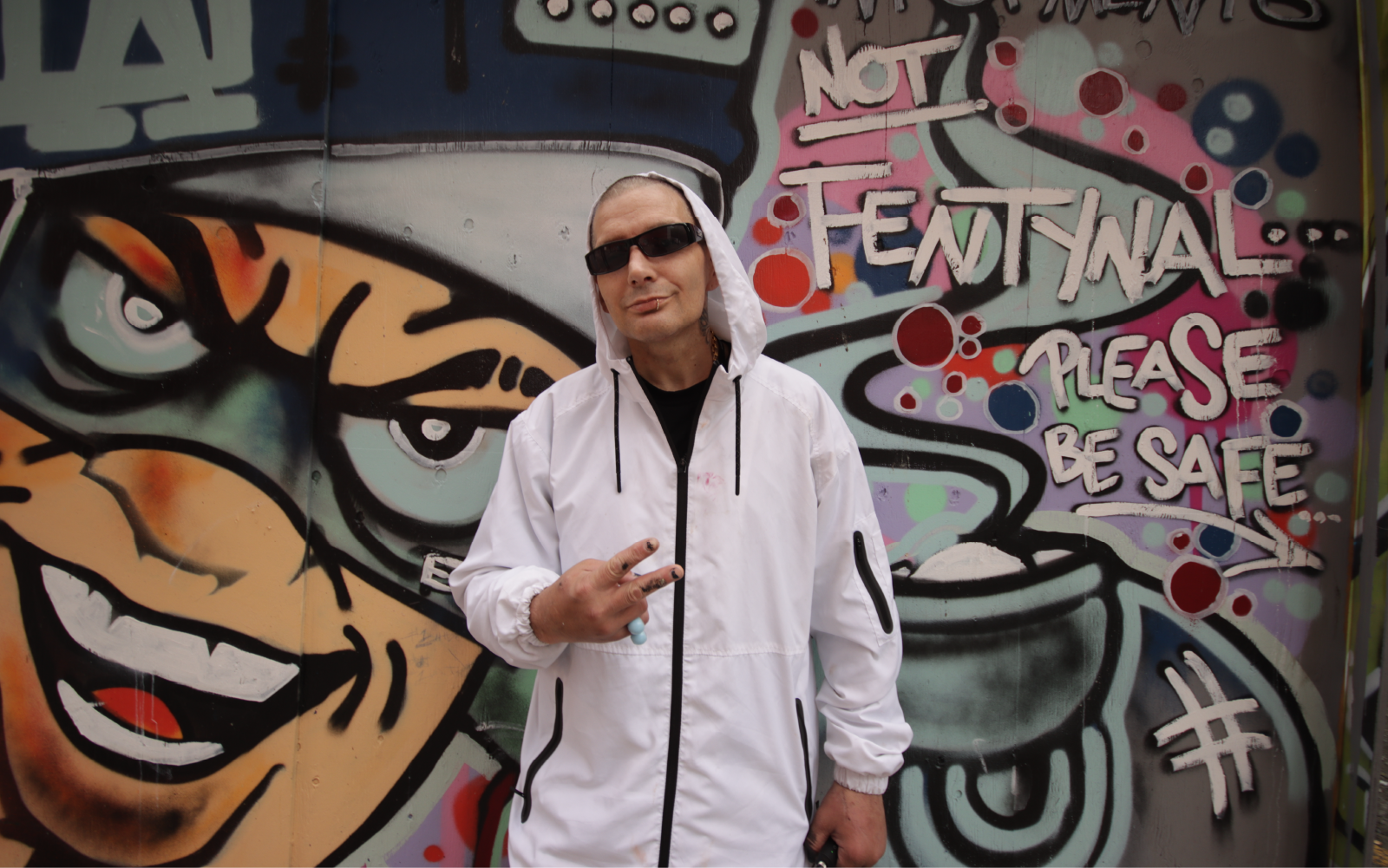Article
Meet Alyha Bardi: sociology & labour studies student, communications co-op, podcast host
With a brand refresh in the works and several new podcast endeavours on the horizon, our team is lucky to have had Alyha Bardi join us in May 2021. She is with us as a co-op student for the summer and fall semesters, working as a Communications Specialist for SFU’s Vancity Office of Community Engagement (SFU VOCE).
Alyha is a fourth year sociology and labour studies student with a deep interest in capitalist critiques, social movements, climate, and human rights. In her studies, she has focused on issues around workers rights — particularly for immigrants, women, and gender diverse workers — as well as labour in the settler-colonial state of Canada and the workings of consumer capitalism.
During her co-op placement, Alyha has been creating engaging communications materials, assisting with the upcoming launch of our new website, and curating her own mini series for the Below the Radar podcast.
We got on a call with Alyha to get to know her better, and find out how her co-op journey with SFU VOCE is going.
This interview has been edited and condensed for length and clarity.
Alyha, we’re so thrilled to have you on the team! You came to us through SFU’s Co-operative Education program. What drew you to this position?
I just want to start by saying I think the co-op program is really great. One of the things that it really let me do was kind of break into this ‘professional’ world of work. Because before that, I had only worked in restaurants.
What drew me to SFU VOCE was that my past co-ops relied a lot on my writing and organizational skills that I developed in university. But something was missing. I was an event organizer for a tour company, I was a Communications Specialist for a software company that focused on employee recognition — but what was missing for me in both of those jobs was the social critiques and the social impacts that I really loved learning about and talking about in sociology, in labour studies. And so when I came across the posting for SFU VOCE, it’s a department that speaks a lot to social and climate justice. It speaks to urban issues, and draws in community, arts and culture, into all of that. It's maybe the first job that I've ever had where I feel like I really, really care about the work that I'm doing, because I feel like I’m doing something that matters to me. But also, it's kind of playing off of my education in a way I really appreciate.
You bring so much to the team — digital skills, research skills, writing skills, cat zoom cameos — but how did you come to develop the social and political lens through which you approach your studies and your work?
One of the biggest things that I've taken away from being in sociology and labour studies classes is that people live very different lives — to put it simply. There's so many different situations, people have different home environments, people have different money situations, they have different intersecting experiences of race, immigration status, sexuality, gender, different cultural histories, and different things that kind of get carried through your family for generations. And so I think it's really easy to go through the world and kind of just see it from your perspective and not really consider the experiences of other people. But I think we need to work against that and try to speak to as many different people as you can. Learn as much as you can, and be open to hearing about people's experiences. And so that's kind of the lens that I've learned through school.
What made you especially interested in gendered labour issues and racial equity at work?
I think it was in my first labour studies class, with Kendra Strauss. We learned about precarious work. We learned about the racist histories of unions, men and women tending to go into different kinds of jobs, the under-recognition of immigrant credentials. So, a lot of things that are heavily influenced by gender, by race, as well as other things like sexuality.
Being in the class and having this opportunity to write about what I've experienced in work... I had made connections between things I've learned in school and my work experiences before, but that was the first time that I was really going the extra mile and thinking critically. I was looking at my coworkers around me, and knowing that I had certified accountants from Iran that were working next to me, making burgers at a Burger King. So that was kind of my introduction into being critical of how race and immigration play into work.
Jobs that women tend to do are consistently more devalued compared to sectors of work that men tend to go into. So men tend to go into more trades jobs, engineering, finance — stuff like that. When I think about the work that healthcare workers or counselors do — or daycare workers who are heavily, heavily underpaid — they're literally raising the next generation, or providing health and wellness for those who need it. We should value that work, but we don't because it's work that is typically done by women.
And then speaking to race and migration, there’s temporary migrant worker programs within Canada, for example. There is just crazy mistreatment and dehumanization of these workers. They're completely underpaid, they’re often working in dangerous conditions, and the only reason they’re putting up with this work is because they depend on it for the livelihoods of themselves and their families. A lot of this mistreatment towards these workers is centred around the fact that these people have been positioned as, quote-unquote, “others”. We have constructed them in society to seem different from us. It’s completely racist. A lot of this is also spoken about by Evelyn Encalada Grez in one of the episodes of the upcoming Women, Work, More, series.
How has your experience working with SFU VOCE been so far? What are your main takeaways?
It's been really cool. With working on the Below the Radar podcast, one of the things that I think is really amazing is that, as I am editing the podcast, as I’m writing episode descriptions, as I’m interviewing guests for Women, Work, More — it circles around a lot of these ideas that have come up through my education. I feel like every time I listen to a guest, I’m learning new things. I think somewhere down the line, I would like to work in social organizations or something along those lines. I also think I'm going to have to try a lot of things before I figure out where exactly I want to be in social justice work and organizing. But having this job is adding to this, I guess, educational toolkit. All of these things that I'm continually learning from this job are going to be so relevant down the road.
You’re in the midst of recording your own original series of Below the Radar, Women, Work, More. Can you tell us a bit about it? What has been exciting, surprising, or challenging about creating this series?
What is exciting about this series is that, in a way, it has been years in the making for me. I had taken my first labour studies class around three years ago. And from there, I've just accumulated all of this knowledge about stuff that I have been really passionate about. And so to come into this job and have Am so willing to let me spearhead this series about women’s work has been really amazing. When I first applied for this job, I never thought that I would be creating my own mini series, which has been such a wonderful opportunity to both share my knowledge, and also get something out there that kind of feels like it's a bit more of something that I've created of my own — even though I'm doing it with the help of you all.
The series will come out in four episodes, and the way it’s divided up is to acknowledge the work-related experiences of women in differing life-stages and social positions. For the first episode, we start with young women workers in the food service industry and the perpetuation of sexual harassment. The following episodes focus on working mothers, migrant women, and ends on the final episode speaking of senior women and financial insecurity. We have five wonderful guests speaking on this series, from academics to a past union executive. Interspersed with their knowledge, we also hear directly from members of these groups through snippets of interviews, or through read-out-loud quotes from prior research.
Oftentimes on podcasts, we'll have academics or quote-unquote, “professionals” from the industry. But we don't always get to hear from people experiencing these particular situations. So for each episode, on young women workers, and so on, the workers that are specifically being spoken about, I'm also doing interviews with them — about their opinions and feelings, and their experiences. So, it's not just from this academic perspective that doesn't always give a true feeling or true experience to what is happening in the world right now. And so that's something that is a little unique to this series. It's important to give an opportunity for people to share their own experiences — to give them a voice.
What are your reflections as someone who is both a worker and a student of labour studies?
I read an article from Kaitlyn Matulewicz, who is also one of the people that I interviewed for my podcast series, and it was on front-of-house workers and their experiences with sexual harassment. That was one of the first papers that I had read that had really influenced me, because a lot of what was within the paper was what I had experienced myself while working within the restaurant industry.
By the time the pandemic came, I was coming into writing my honours paper for sociology, but it's also very heavily focused on labour. And so given the context of the pandemic, I decided to focus on the experiences of front-of-house coffee workers. The main findings that I discovered from that paper was that emotional labour for these workers had increased during the pandemic, that there is this perception of unlimited customer freedom, specifically, with customers who were resistant to safety measures. And that it was oftentimes when the BC government would step in, putting things in place like the mask mandate, that workers were able to be more empowered to stand up to customers within the work environment. But then when the mandates leave, then the workers become disempowered again. And so, I think somehow we need to work within government structures to re-empower service workers within food service industries, within any front-facing industry where these workers are consistently thought of as lower than the customers.
It definitely comes back to capitalism and patriarchy. Capitalism consistently puts profits and maximizing profits before anything else. So when you have a system that values profit before all else, things like people and the environment are going to come second. That's where we see so many problems, like underpaying workers, sweatshops, climate change — because we've created a world that cares more about money than people.
Related Updates
-
February 19, 2025

February 19, 2025
On behalf of SFU’s Vancity Office of Community Engagement, we wanted to take the time to say that we have been overwhelmed and deeply touched by the voices of love, solidarity and support that have been shared since the announcement of the closure of our office on January 22, 2025 by SFU.
-
January 15, 2025

January 15, 2025
Can podcasting act as a new kind of scholarly form? What are the characteristics that make a podcast scholarly, and what is the potential of scholarly podcasting beyond knowledge mobilization and public scholarship? These are the questions that the Below the Radar Academic Advisory Board approached at the scholarly podcasting teach-in this past October—the first public convention of the advisory board since their inception.
-
August 15, 2023

August 15, 2023
With details of our 5-year anniversary celebration event to come, let’s take a sneak peek of the upcoming season.
-
July 26, 2023

July 26, 2023
Since September 2022, we’ve held 42 events and workshops, released 33 episodes, and engaged more than 25,000 podcast listeners. During that time, working diligently behind the scenes—editing podcast audio, and supporting communications and events programming—was our interim Programs Assistant Samantha Walters, who we are pleased to announce has now moved into a continuing role in the office.
-
July 20, 2023

July 20, 2023
On June 29, 2023, 200 people turned out for the world premiere screening of Smokey Devil: Underworld Street Reporter, a feature length documentary by Nathaniel Canuel, co-hosted by SFU’s Vancity Office of Community Engagement.



